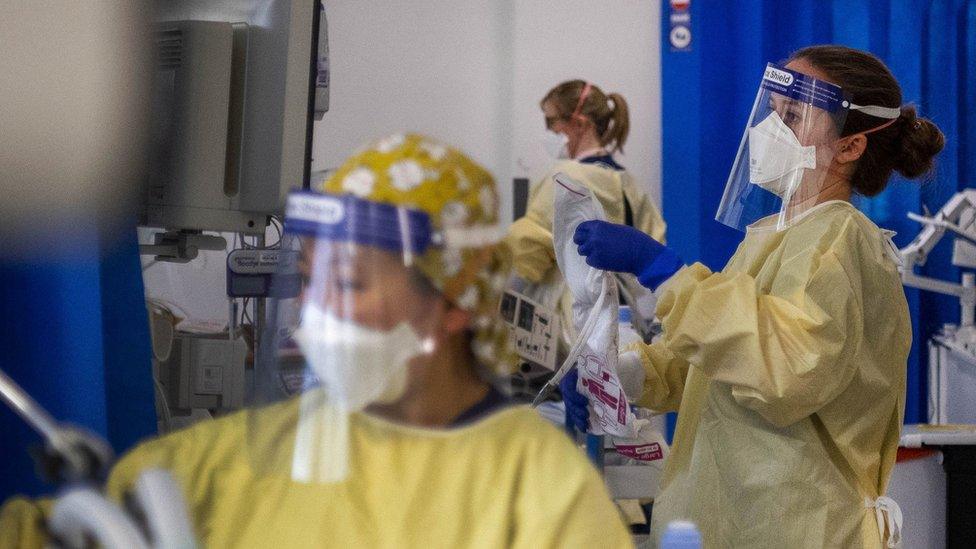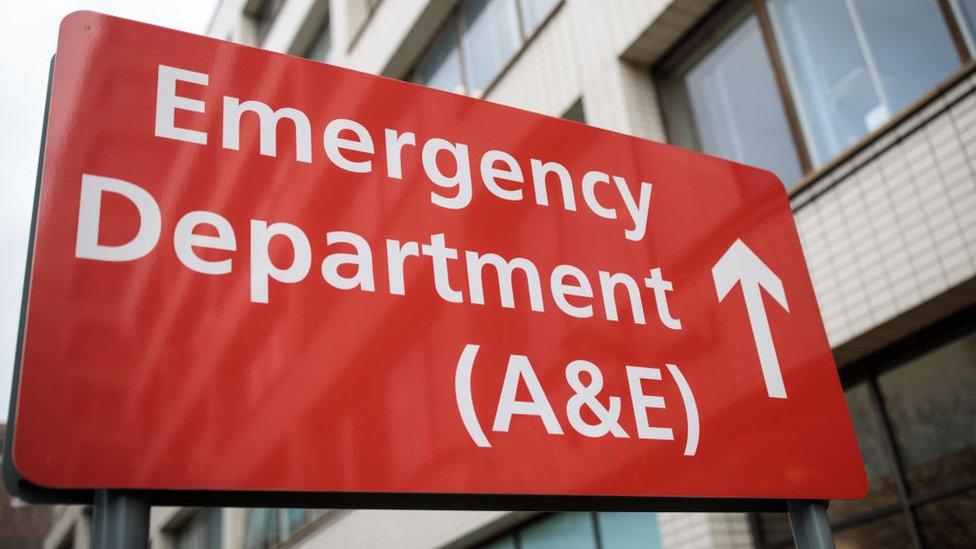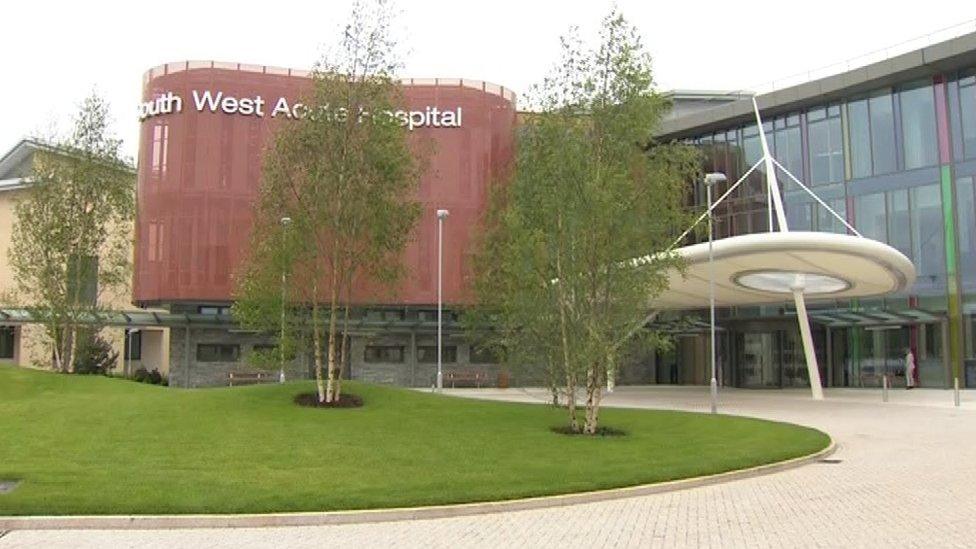NI hospitals: 400 emergency patients wait over 12 hours for bed
- Published

Four hundred emergency patients waited more than 12 hours to be admitted to hospital in the last day in Northern Ireland, a senior doctor has said.
Dr Paul Kerr, from the Royal College of Emergency Medicine for Northern Ireland, said some of them have been waiting up to two days
The Department of Health has said that emergency departments "remain under severe strain".
This follows an extremely busy bank holiday weekend.
"There's no doubt what we are witnessing is unprecedented activity and huge crowding in emergency departments," Dr Kerr said.
He said this was leading to delays in admission, with large numbers of emergency patients awaiting admission lying on trolleys.
"For example, this morning there's probably in the region of 250 patients waiting in emergency departments, these are patients who have already been seen, assessed and treated and are awaiting a bed," Dr Kerr said.
"In the past few days we know some of these patients are waiting one or two days on a trolley.
"These are sick patients, these are our most vulnerable patients - old people possibly, with sepsis possibly, with strokes possibly, or a heart attack or possibly with a fractured hip or some other emergency that require them to be admitted to hospital.
"There are 400 who have waited over 12 hours in the past 24-hour period. That is something that we previously didn't see."

Covid-19 pressures in hospitals are part of the problem
Sean McGovern, associate medical director at the South Eastern Trust, said trolley waits had been around in emergency departments for a very long period of time.
"What is highly unusual is they've been at such an extent over the summer period and the backlog of patients waiting admission in emergency departments is adding significant stress to emergency departments, it's causing overcrowding and therefore in a world of social distancing is of great concern to staff," he said.
"We are seeing stresses that we would see in the worst of winter pressures. The likelihood is things could get worse before they get better."
He added: "We must look at opening up acute beds in the first instance, even though that is difficult to get staffing for those beds, to maintain those beds is difficult.
"We must have a clear strategy, and understand the big issues facing the health service are capacity and pandemic resilience in this time."
In a statement, the Department of Health said emergency departments remain under severe strain, reflecting pressures right across the health and social care system.
"There are a number of interlinked factors behind this situation, including limits on capacity due to Covid-19 infection prevention measures, ongoing Covid-related care for patients, people coming forward for medical care for conditions that developed or worsened during the pandemic and limits on capacity in intermediate/social/domiciliary care, impacting on hospital discharges," it said.
"The public can help by using services appropriately. To be clear, if your case is an emergency, then you should go to a hospital emergency department without delay. We must continue to do all we can to stop the Covid-19 virus spreading.
"By getting fully vaccinated, with both doses of vaccine, you will be playing an important part in supporting our health service."
Related topics
- Published30 August 2021

- Published29 August 2021

- Published26 August 2021
